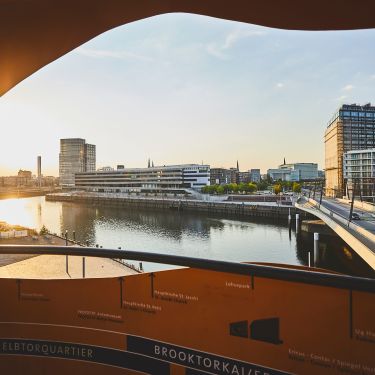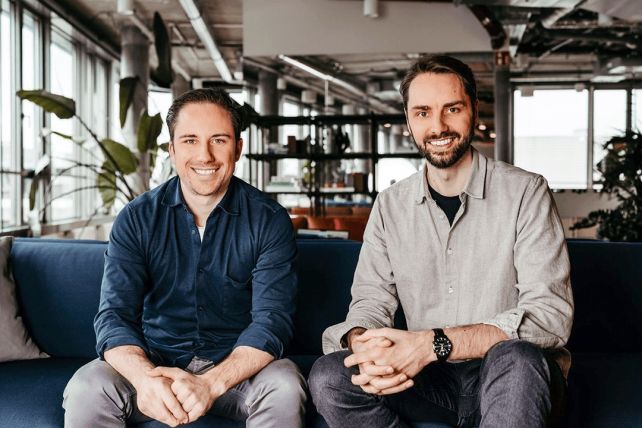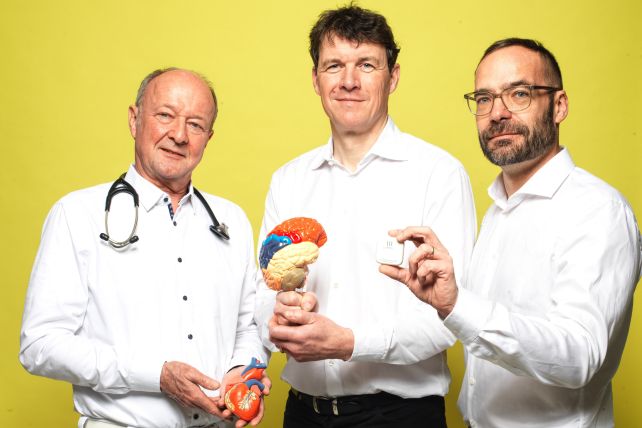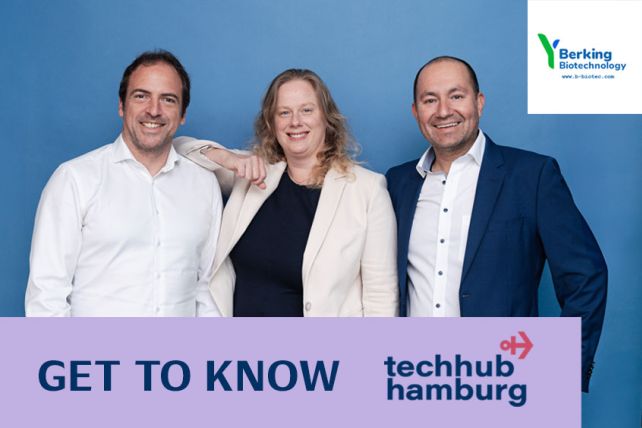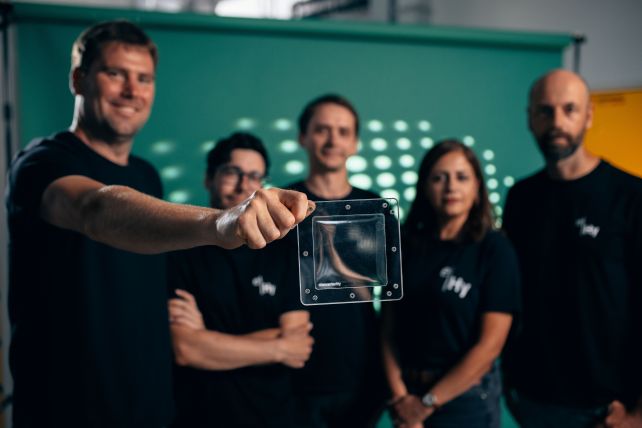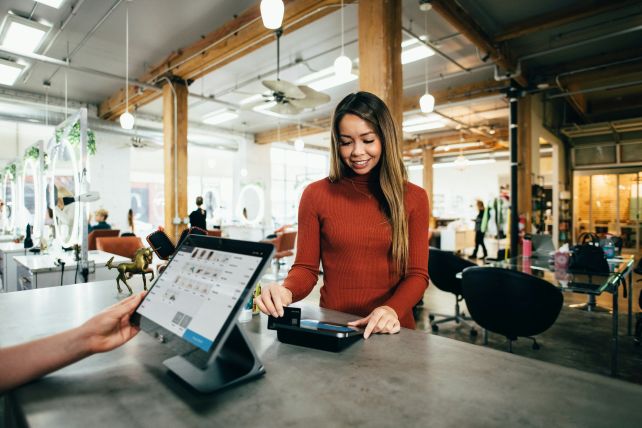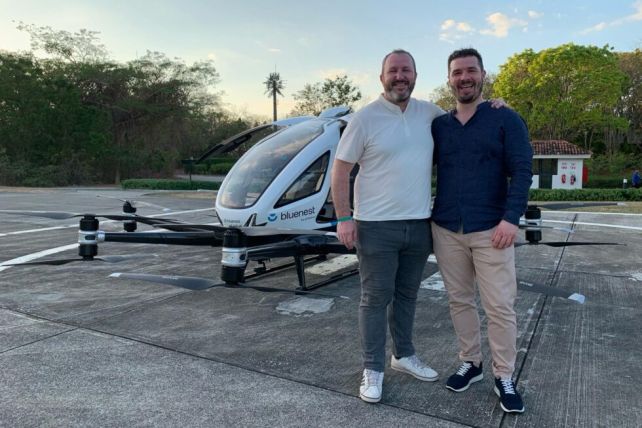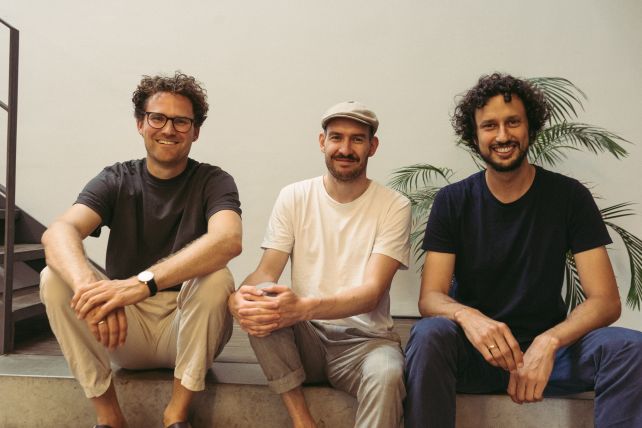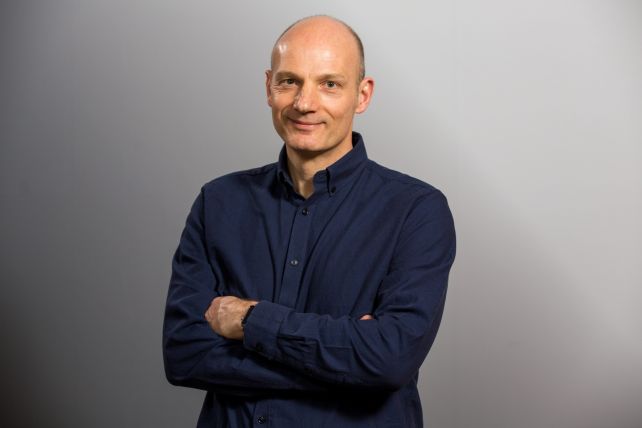The shortage of skilled workers in the catering industry could soon be a thing of the past. When the robot cuts the vegetables, weighs the ingredients and seasons the roast, everything will work like magic. Hamburg-based startup GoodBytz could soon make the dream of many chefs come true with its robotic kitchen assistant.

GoodBytz has two eventful years behind it
It was only around two years ago, in August 2021, that CEO Dr. Hendrik Susemihl and his co-founders Kevin Deutmarg (COO) and Philipp von Stürmer (CTO), together with five engineers, began developing a robot for professional kitchens. They researched and experimented with great vigour and optimism. Just three months later, the first prototype was cooking its delicious dishes and was able to win over investors. Four million euros have already been acquired for the seed financing in 2022 of the innovative project. A comfortable cushion to continue working creatively. The experienced founding team had previously worked together at the Fraunhofer Institute and Neura Robotics, a high-tech company for intelligent robot assistants.
In October 2023, GoodBytz received 12 million euros in its Series A financing round from Hamburg-based Block Food AG and VC investor Oyster Bay. "We've been involved right from the start. The potential of robotics in professional kitchens is enormous," says Christoph Miller, founding partner of lead investor Oyster Bay, explaining his involvement. The Hamburg-based venture capitalist has been investing in European food and agtech startups along the entire food value chain since 2018.
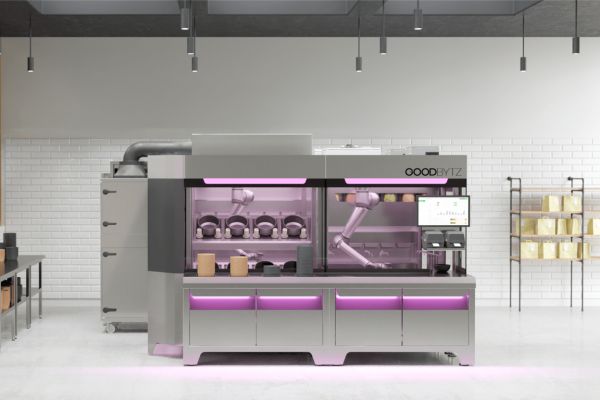
The kitchen robot is already proving its worth in practice
The investment is hardly too risky. The kitchen robot has long been a reality, even if only in limited numbers so far. But it cuts, stirs, seasons, rinses and does pretty much everything that usually makes a chef in a catering kitchen break out in a sweat. The smart machine from GoodBytz has been successfully baking, cooking and frying treats for Lieferando since June 2022 in a specially equipped Ghost Kitchen designed just for the delivery service. Several thousand dishes have already been delivered and eaten. Customers have enjoyed them. With their reviews, they voted the kitchen with the GoodBytz robot into the list of the top 15 per cent of restaurants.
"What’s special about it: None of the customers knew that the food was cooked by a robot," emphasises COO Deutmarg. "This proves that robots really can produce high-quality food. By mixing state-of-the-art technology with culinary craftsmanship, we at GoodBytz have set a new standard for catering excellence."
And demand is high. The possible applications of the robotic kitchen assistant are almost inexhaustible, the founder estimates. In restaurants, ghost kitchens, school canteens, cafeterias, hotels, company restaurants, hospitals and care homes, the appliances could be put to good use in the future.
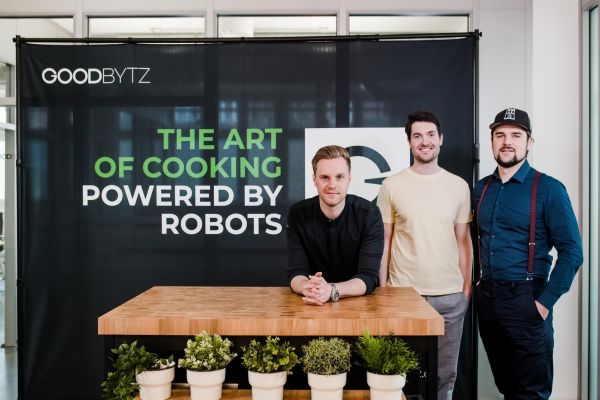
Up to 3,000 meals a day from the Robotic Kitchen
"The robotic kitchen from GoodBytz maximises efficiency and reduces personnel costs by up to 80 percent," says Deutmarg. His robot can prepare up to 3,000 meals per day and 150 per hour. "The aim is to enable culinary innovators worldwide to transfer their innovative cooking techniques and unique dishes to the robot, which then prepares the developed meals for guests precisely, hygienically and with consistent quality. This will make the profession of chef more attractive, as repetitive and hard work steps will be carried out by robots in the future." Digital precision control instead of hard labour. Robots, if they do indeed find their way into the industry, are likely to fundamentally change the job description of chefs. This is because the device will take over many tasks for which humans were previously considered irreplaceable. The digital kitchen system is also equipped for precision work.
"With its advanced sensors, the robotic kitchen can accurately weigh the ingredients for the cooking process and adjust the cooking times depending on the type of dish being prepared. In addition, the Robotic Kitchen has a user-friendly interface that allows anyone to transfer their favourite dishes to the system, whether they are an experienced chef or a beginner," says Deutmarg, describing his project. "The special thing about our product is the focus on the entire digital ecosystem and not just the automation of the kitchen. The robot can be trained in a similar way to a human and adapted to different kitchens and conditions."

"Creative atmosphere in Hamburg"
The machine is connected to various software tools that make catering data-driven and sustainable, says Deutmarg. "The overarching goal is to make healthy, sustainable and freshly prepared food available to everyone at an affordable price." Despite the convenience and sophisticated technology, the robotic kitchen also contributes to climate protection by reducing electricity consumption and food waste in the kitchen through efficient control.
By the end of next year, 100 robots are supposed to be in use. According to Deutmarg, the expected growth spurt will see the team expand from 30 to 60 by the end of this year and to 90 employees by the end of 2024. Next March, the team plans to present itself at the Internorga trade fair in Hamburg, as it did this year, and announce partnerships with system providers such as Palux and Winterhalter as well as future customers. The opening of a flagship store in the Hanseatic city is also planned for next year. The continued success of GoodBytz should make Hamburg an even more attractive location for startups from the robotics and food sectors. For founder Hendrik Susemihl, the Hanseatic city offers plenty of potential for further growth.

